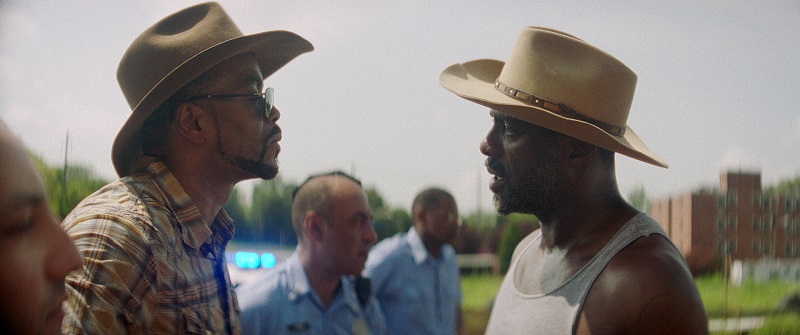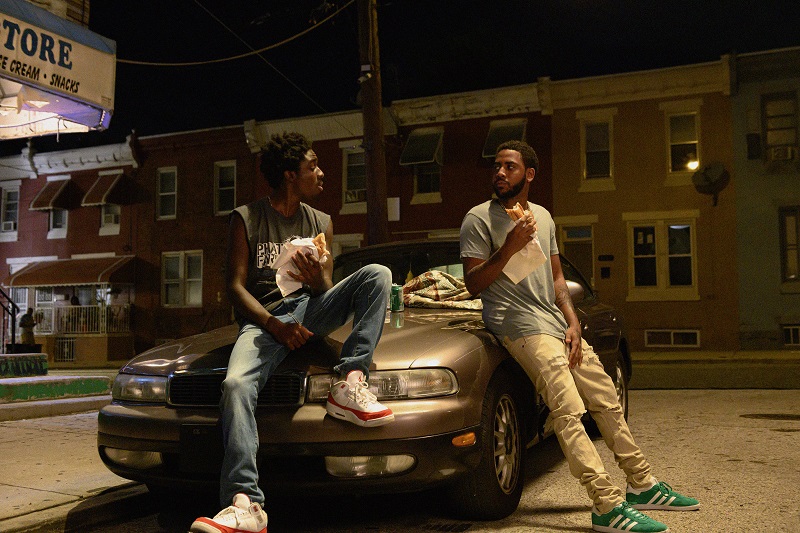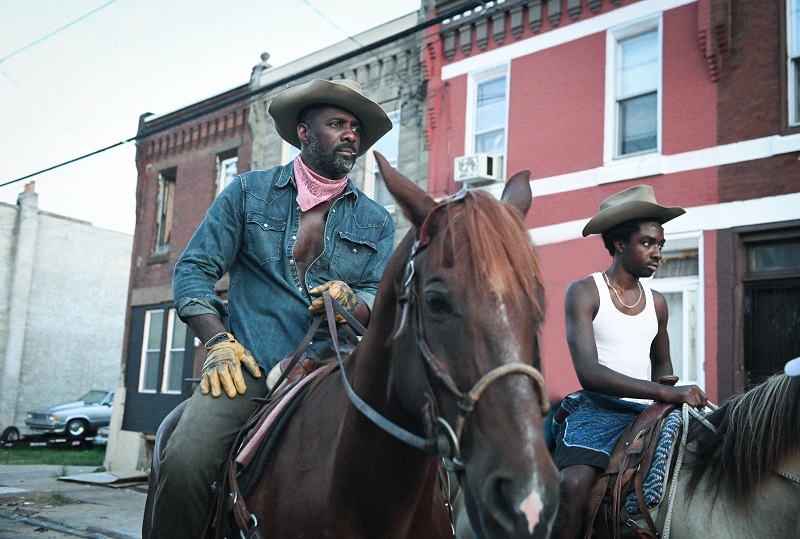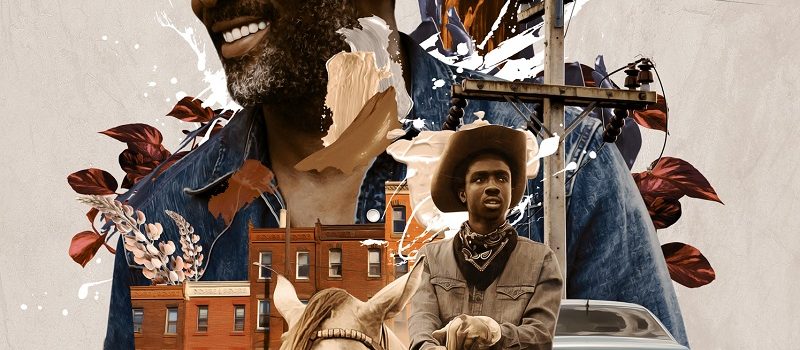There is a powerful history of urban horses and those who wrangle them in Philadelphia that gets celebrated in Netflix’s latest rich cinematic endeavor, Concrete Cowboy. Idris Elba stars as Harp, who is a proud member of a select group of African American cowboys whose high plains drifters are better known by their home, Fletcher Street Stables.

With every deep and meaningful story, it helps to have an “in” to draw us in and never let us go. Here that arrives in the form of teenage Cole (Caleb McLaughlin), who when we meet him has just been expelled from his Detroit high school. His mother has had enough. This is merely the latest in a laundry list of poor decisions by the young man. Plastic bags with his clothes in them are strewn throughout the backseat and he finds himself in a car that will not be stopping until it hits the city of Brotherly Love. Cole doesn’t know it yet, but he’s spending the summer with his father… Harp.
These Philadelphia stables are becoming fewer and far between. Concrete Cowboy… what a way to celebrate, not just a culture, but a way of life. The reality of less and less space for more and more people equates to a formula that has rents rising. It’s not just stables but entire neighborhoods disappearing to re-emerge as something wholly different. When Cole arrives, he doesn’t see his father’s couch as all that permanent. This writer has to be upfront. I adore dogs, but my favorite animal in the entire world is horses. There is something about these graceful giants that I have connected with since I was young. Cole resists the entire situation at first, claiming that he won’t stay and share a home with an equine (Harp has one living in his house!).
All you need to do is be around horses for mere minutes and when it’s just you and this physically impressive powerful beast, and it changes a person. In Concrete Cowboy it is subtle with Cole. He also has competition for his attention that is his boyhood friend Smush (Jharrel Jerome), who is living the street life of North Philadelphia. Cole’s father has forbidden him from hanging with his old pal. Dad knows how that story ends.
There is a real sense of community with the stables, much more than usual with the entity that is a neighborhood. Conversations are had around a campfire that has the feel of those from hundreds of years ago in another time and place, certainly not the middle of urban America. One revealing night, Cole hears about how the first Cowboys were African American and that being called “boy” was derogatory, therefore Cow-“boy.” A fascinating history has been whitewashed, they discuss, and in the process not only does the viewer experience a father-son tome that recalls the Laurence Fishburne/Cuba Gooding Jr. dynamic of Boyz in the Hood, but also a lesson is served in white America and the lengths they’ll go to remove color from its past.
The relationship between Elba’s Harp and McLaughlin’s Cole takes work, as it should. Cole doesn’t know his father, and the truth is the same can be said going the other direction. Elba has a command over his character that is hardly a surprise. What does impress is the lengths the English actor goes to capture the soul who is an estranged American father to an at-risk black teenager. Not for one second is there any doubt that Elba is a true urban cowboy, and he embodies Harp as someone who is guided by a code that is similar to those that ruled those who inhabited the so-called “old west.”

Elba is an enigmatic actor, no matter the part or the amount of time an audience gets to spend with him. Whether it is a part captured in a two-minute trailer—as he does as the antihero Bloodsport in the new The Suicide Squad trailer—or as an attorney to the titular character over the course of an entire picture in Aaron Sorkin’s Molly’s Game. Not only is there nothing he cannot do as a thespian, but there is not an individual who exists in front of a camera who would be made better by having Elba portray them.
Speaking of the elusive craft, McLaughlin has done something extraordinary with his take on Cole. The Stranger Things star is practically unrecognizable in Concrete Cowboy and that is not something that was achieved through costumes, hair, and makeup. That fact is achieved through the titanic talent the young actor possesses. Although the script director Ricky Staub and his co-writer, Dan Walser, crafted is pitch-perfect, the teenage actor elevates the Cole experience through his innate gifts. Clearly, he also put in an impressive amount of hard work. A different actor would have left us with a wholeheartedly different feel than McLaughlin did with his Cole.
There are also the unspeakable aspects, the intangible elements, that an actor brings to a set, i.e., his chemistry with Elba. Like any relationship onscreen or in real life, our connections with people are constantly evolving and changing with the passage of time and shared experiences. Witnessing McLaughlin and Elba over the course of Concrete Cowboy is a stunning study in character collaborations done divinely.

As the helmer behind this fantastic film, Staub keeps an eye on the bigger picture. His film isn’t solely about African American cowboys living in Philly, whitewashed history, a fractured father and son relationship, urban gentrification (and the motives behind it), love and loss, and the magic of God’s gift to us all—horses.
Concrete Cowboy is all of the above and so much more. It is one of those rare cinematic experiences that finds you better for living in that world for two hours.
Grade: A

